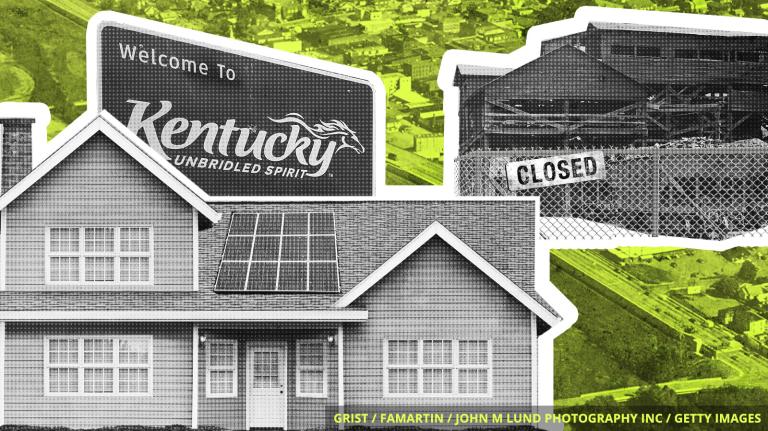It’s Monday, March 25, and economics favor bringing an end to the coal era.
![]()
King Coal is a dead man walking. A new report out on Monday finds that wind and solar costs have plunged so rapidly that nearly three-quarters of the U.S. coal fleet could be phased out for renewable energy and lead to “immediate savings to customers” in the coming years.
The report, by the California clean energy nonprofit Energy Innovation, shows the United States has officially entered the “coal cost crossover” — where existing coal is more expensive than new solar or wind. (By the by, that calculation doesn’t include coal’s associated costs such as its hastening of climate change or its contribution to air pollution and health care expenses.)
The dirty fuel’s price tag is going to look like even worse as renewables continue getting cheaper. According to the report, around 86 percent of coal plants could be at “risk” of replacement by 2025.
While President Trump remains coal’s biggest fan, the data largely suggest that it’s simply bad business to burn coal. “Even without a major policy shift, we will continue to see coal retire pretty rapidly,” report coauthor Mike O’Boyle told the Guardian. “Our analysis shows that we can move a lot faster to replace coal with wind and solar. The fact that so much coal could be retired right now shows we are off the pace.”

The Smog
Need-to-know basis
A humanitarian crisis is looming on the Pine Ridge Native American reservation in South Dakota. As floodwaters recede in much of the Midwest, the reservation remains cut off by swamped roads. People there have been stranded for nearly two weeks with limited food and water.
![]()
They survived wildfires and hurricanes, and then they were put at increased risk of identity theft. The Federal Emergency Management Agency publicly acknowledged that it shared 2.3 million disaster survivors’ sensitive personal data, such as bank account numbers, with a federal contractor.
![]()
The official death toll from Cyclone Idai climbed to 750 across three southern African countries, making it one of the region’s worst natural disasters in recent history. As the conditions in the city of Beira in Mozambique improve, vital aid from international aid groups should be funneled more freely, according to reports.

